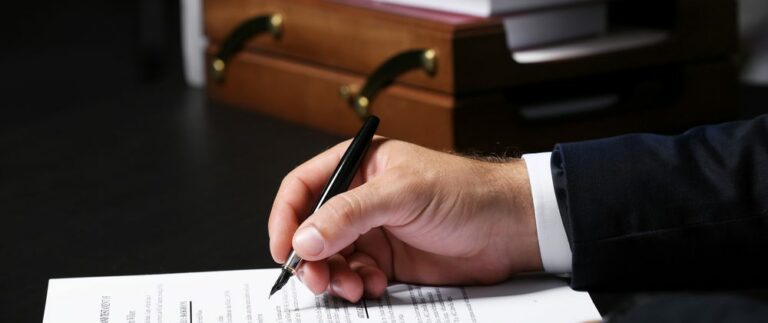Ethics Opinion 1260: Responsibilities of a lawyer in a non-legal position
7.13.2023

Topic: Responsibilities of a lawyer in a non-legal position
Digest: A lawyer employed as a lawyer’s assistant to provide both legal services and nonlegal services to the supervising lawyer’s client is subject to the Rules set forth in the New York Rules of Professional Conduct. Because the services provided by the legal assistant are part of a package of legal services provided by the supervising lawyer to the client, the assistant’s nonlegal services are not “distinct” from the legal services being provided to the client, so the exception in Rule 5.7(a)(4) that contemplates that the Rules of Professional Conduct might not apply to nonlegal services provided by a lawyer to a client if they are distinct from legal services provided to that client is not available.
Rules: 5.1(b)(2), 5.2(a), 5.3(a), 5.7
FACTS:
- The inquiring attorney is employed as “Confidential Assistant” to a School Attorney, a full-time civil service position that the inquirer characterizes as primarily secretarial and administrative, and which does not require a law degree or admission to the bar (though the inquiring attorney has both). The stated responsibilities for the position include the preparation of documents for signature by the School Attorney and the revision of drafts of legal documents and reports. The position requires the incumbent to have “good knowledge” of the organization, functions, laws, policies, and regulations both of the office of the School Attorney and of the School District.
QUESTIONS:
- In performing his duties as a Confidential Assistant to the School Attorney, is the inquirer governed by the New York Rules of Professional Conduct (“Rules”)?
OPINION:
- When a lawyer exercises professional legal judgment in providing services that a nonlawyer would be lawfully permitted to provide, the lawyer is engaged in the practice of law and is governed by the Rules. See N.Y. State 709 (1998) (citing N.Y. State 636 (1992)) (“[E]ven though trademark searches and application filings may be performed by non-lawyers, to the extent that the attorney invokes his or her professional legal judgment in conducting searches or filing applications, the business becomes the practice of law”). Accordingly, the inquirer here is bound by the Rules with respect to the various duties he performs in the supporting role of Confidential Assistant to the School Attorney to the extent that the inquirer applies his professional legal judgment in the performance of those duties.
- What then about the purely clerical or administrative duties that the inquirer also undertakes for the School Attorney? Do the Rules govern those actions as well?
- To answer that question, we first turn to Rule 5.7, entitled “Responsibilities Regarding Nonlegal Services.” Rule 5.7 distinguishes between “legal services” and “nonlegal services” provided by lawyers and defines nonlegal services to mean “those services that lawyers may lawfully provide and that are not prohibited as an unauthorized practice of law when provided by a nonlawyer.” Rule 5.7(c). Where the legal services provided are “not distinct” from the nonlegal services, a lawyer “is subject to these Rules with respect to the provision of both legal and nonlegal services. Rule 5.7(a)(1) (emphasis added).
- Where the legal services provided “are distinct” from the nonlegal services, the lawyer “is subject to [the] Rules with respect to the nonlegal services if the person receiving the services could reasonably believe that the nonlegal services are the subject of a client-lawyer relationship.” Rule 5.7(a)(2) (emphasis added).
- Under Rule 5.7(a)(4), there is a rebuttable presumption that the person receiving nonlegal services that are distinct from legal services nonetheless believes that the nonlegal services are the subject of client-lawyer relationship, and thereby governed by the Rules, “unless the lawyer has advised the person receiving the services in writing that the services are not legal services and that the protection of the client-lawyer relationship does not exist with respect to the nonlegal services . . .”
- The application of Rule 5.7 to the inquirer’s situation, however, is shaped by the fact that the inquirer’s client is not the School Attorney to whom the inquirer reports. Rather, the client is the School District. The School Attorney, assisted by the inquirer as a subordinate School District employee, is providing legal services to that client (the School District), not unlike a nonlawyer secretary or nonlawyer administrative assistant employed in a private law office.
- Accordingly, a Rule 5.7(a)(4) notice to the client (the School District) cannot rebut the presumption that the inquirer’s clerical or administrative nonlegal services are subject to a client-lawyer relationship (i.e., School District-inquirer). Because the legal services rendered by the School Attorney are “not distinct” from the supporting nonlegal services rendered by the inquirer, the Rule 5.7(a)(4) escape hatch is not available here. Whether the inquirer’s services are legal services or nonlegal services, those services are provided as part of a package of legal services rendered by the School Attorney to the School District. As such, the inquirer’s nonlegal clerical and administrative services cannot be “distinct” from the legal services being provided to the client by the School Attorney to whom the Confidential Assistant (the inquirer) reports and for whom he works. Accordingly, we conclude that all duties performed by the inquirer to assist the School Attorney in providing legal services to the School District are governed by the Rules of Professional Conduct.
- Our conclusion that all duties performed by the inquirer to assist the School Attorney in providing legal services to the School District are governed by the Rules is in harmony with Rule 5.1, entitled “Responsibilities of Law Firms, Partner, Managers and Supervisory Lawyers, and Rule 5.3, entitled “Lawyer’s Responsibility for Conduct of Nonlawyers.” Both Rules 5.1 and 5.3 would require the School Attorney to take appropriate action to assure that the inquirer, as Confidential Assistant, whether acting as a lawyer or nonlawyer, conduct himself in accordance with the Rules. See Rule 5.1(b)(2) (“A lawyer with direct supervisory authority over another lawyer shall make reasonable efforts to ensure that other lawyers in the firm conform to these Rules”); Rule 5.3(a) (“A lawyer with direct supervisory authority over a nonlawyer shall adequately supervise the work of the nonlawyer, as appropriate.”); and Comment [2] to Rule 5.3 (“With regard to nonlawyers, who are not themselves subject to these Rules, the purpose of the supervision is to give reasonable assurance that the conduct of all nonlawyers employed by or retained by or associated with the law firm, including nonlawyers outside the firm working on firm matters, is compatible with the professional obligations of the lawyers and firm”).
CONCLUSION
- A lawyer employed as a lawyer’s assistant to provide both legal services and nonlegal services to the supervising lawyer’s client is subject to the Rules set forth in the New York Rules of Professional Conduct. Because the services provided by the legal assistant are part of a package of legal services provided by the supervising lawyer to the client, the assistant’s nonlegal services are not “distinct” from the legal services being provided to the client, so the exception in Rule 5.7(a)(4) that contemplates that the Rules of Professional Conduct might not apply to nonlegal services provided by a lawyer to a client if they are distinct from legal services provided to that client is not available.
(04-23)




